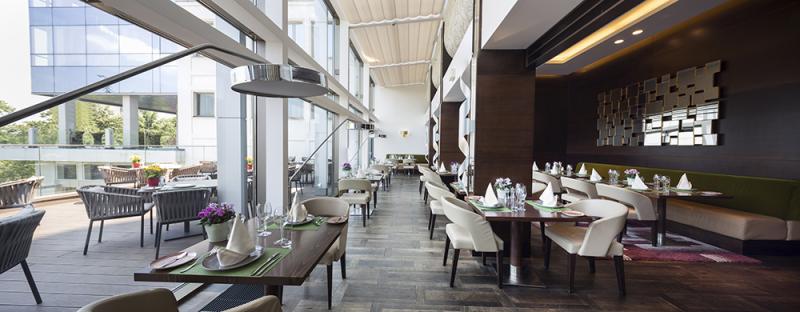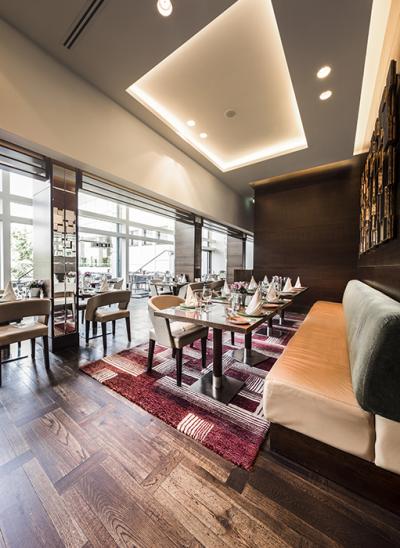Alongside the restaurant industry, the hotel and travel industry was hit hard by the COVID-19 pandemic, as all travel virtually came to a stop overnight. Fortunately, the market has rebounded.
“The global hospitality industry continues to recover and stabilize following an extended period of turbulence, with around three in five U.S. on-premise visitors planning to travel domestically in the next three months,” said Matthew Crompton, regional director – North America, CGA by NielsenIQ (CGA by NIQ) in the research agency’s latest Hotel BevAl Opportunity Study.
The report also found that almost two in five U.S. on-premise visitors expect to take more domestic trips in 2023 versus 2022, with only 6% expecting to travel domestically less often.
As travel rises, so does food & beverage tourism. According to a recent report from Future Market Insights (FMI), the food tourism market is expected to reach $999,033.40 million in 2023 and $4,112,489.40 million by 2033. The food tourism sector is to develop at a compound annual growth rate of 15.20% from 2023 to 2033.
Within food tourism, FMI says that restaurants remain the top preferred activity, with 58.40% of segment share.
“With increased demand from travelers seeking unique culinary experiences, the food tourism sector is witnessing a strong market outlook,” said the FMI report.
Now is the Time for Bars/Restaurants to Partner with Hotel F&B Programs
The bottom line? Restaurants and bars have much to gain by teaming up with hotels to capitalize on this surge in travel. “With both sides equally as keen to optimize in this area, it’s an opportune time to join forces in order to come up with powerful strategies for mutual wins,” said Crompton. “A key element to succeeding in this area is by exploring how consumers wish to engage with different touchpoints within the hotels space. This will enable hotels and beverage suppliers to tailor strategies to ensure they are meeting the needs of visitors.”
One of the touchpoints that’s becoming increasingly important is F&B. “At a time when guests are leveraging technology to lessen their in-person hotel interactions—for example, checking in and out—food and beverage remains one of the few touchpoints that continue to enhance the in-person guest experience,” says Joanne Liu, vice president, Restaurants and Bars, Marriott International. “From a business perspective, food and beverage is no longer just an addition to core hotel operations, it has become a priority due to its ability to serve as a true differentiator and a main source of revenue and reputational benefit for the hotel. For that reason, we’re seeing hotels put more emphasis on the marketing and branding of food and beverage programs to support their development and success.”
This increased emphasis is well aligned with consumer demand. For example, CGA by NIQ’s Hotel BevAl Opportunity Study cited that over two-thirds of on-premise consumers are likely and willing to pay more for a better-quality drink when visiting a hotel to take advantage of its leisure facilities. This is especially true with younger groups like millennials.
That consumer group isn’t limited to only travelers, however, as hotel F&B programs aim to attract locals as well. “As hotels expand their culinary offerings to differentiate themselves from competitors, there is an increased focus on attracting both in-house guests, as well as locals,” says Liu. “This might involve specialty restaurants, regional offerings, or partnerships with renowned chefs and restaurateurs.”

What Hotels are Looking for in an F&B Partner
Speaking of renowned chefs and restaurateurs, Marriott’s Liu says these are the groups that hotels are actively seeking partnerships with. She says hotels are looking for brands and individuals that will elevate and diversify a hotel’s food and beverage offerings. “As with most industries, diversity breeds innovation when it comes to food and beverage programs,” she says.
That “renowned” title doesn’t necessarily translate to chain or multi-location restaurants either. “At Marriott, we recognize that our guests have a choice in terms of where they choose to dine, and independent restaurants have traditionally done a great job of providing creative options catered to their locality,” says Liu. “This provides a heightened interest in partnering, as these restaurants have the foundation of attracting repeat guests.”
The ability to provide cuisine emblematic of the local area is also a big draw. According to FMI’s report, consumers are increasingly appreciative of authentic local cuisine and are eager to visit new places to satisfy their interests.
This is a trend that the Marriott is actively tapping into. “We continue to see an increase in locally sourced ingredients,” says Liu. “We find that combining current trends with traditional offerings provides guests a palatable level of surprise and delight, which leads to repeat customers.
“At Marriott, we have the opportunity to serve as a conduit for introducing people to new food and beverage experiences through our restaurant and bar creativity,” continues Liu. “[We] work to incorporate modern technologies and different ways to highlight more biodiverse ingredients in both culinary and beverage programs. This leads to fusion cuisines from cultures that we may not have highlighted in the past, such as African and lesser-known Asian regions.”
In addition to local- and global-inspired cuisine, Liu says she’s also seeing healthy menu options, low-to-no ABV beverages, interactive and experiential dining, and sustainability and environmentally conscious initiatives trending in the hotel F&B space. “As these trends continue to gain momentum year over year, they are embedded into the everyday operations and menus of our food and beverage programs,” she says.
Similar to the on-premise industry, personalization and premiumization are also trending in the hotel F&B space. “Guests are more vocal and communicative about their individual preferences,” says Liu. “A recent example is our All Kinds: The Algorithm pop-up bar that took place at Tales of the Cocktail at the W New Orleans – French Quarter this year, which was centered using AI technology to tailor a personalized cocktail to the flavors of each guests’ preferences.”
Speaking of AI, Liu sees this and other types of technology continuing to make inroads into the industry. “Technology will continue to supplement the everyday needs of the industry with an increase of robotics and digital platforms to make the everyday tasks and lives of our associates easier, but also to enhance the ability to learn more about our guests as we anticipate and customize to their needs with the use of AI,” says Liu. “The use of digital menus, mobile dining, and pay-at-table solutions, even virtual reality dining experiences, are more integrated into daily operations than ever before and are now a core part of the guest experience.”

According to the FMI report, consumers seem to expect these technological tools. For example, online booking is the top method of making reservations in the food tourism sector at 40.2%.
“The emergence of digitalization has affected the food tourism industry positively,” says the FMI report. “The presence of different apps for bookings of restaurants, food festivals, cooking classes, etc. has made it easier for consumers.”
How Bars/Restaurants Can Partner with Hotels
Liu’s advice to independent restaurants and bars looking to partner with the hotel sector is to lean into their identity, concept, and successes. “Operators should also keep in mind that there is a certain amount of adaptability and collaboration required to align with the hotel’s overall vision, target market, and guest expectations that is integral to a successful partnership,” she says.
Other factors familiar to restaurant/bar operators, like guest experience and consistency, translate into a partnership with hotels as well. “Consistency in quality and service is imperative, regardless of meal period or day of the week, and hotel business patterns such as 24-hour service can be challenging if the operator and hotel aren’t working cohesively,” says Liu.
Are you registered for our Crave and Crave on the Menu newsletters? Sign up today!
Plan to Attend or Participate in the 2024 Bar & Restaurant Expo, March 18-20, 2024
To learn about the latest trends, issues and hot topics, and to experience and taste the best products within the bar, restaurant and hospitality industry, plan to attend Bar & Restaurant Expo 2024 in Las Vegas. Visit BarandRestaurantExpo.com.
To book your sponsorship or exhibit space at the 2024 Bar & Restaurant Expo, contact:
Veronica Gonnello (for companies A to G) e: [email protected] p: 212-895-8244
Tim Schultz (for companies H to Q) e: [email protected] p: 917-258-8589
Fadi Alsayegh (for companies R to Z) e: [email protected] p: 917-258-5174
Also, be sure to follow Bar & Restaurant on Facebook and Instagram for all the latest industry news and trends.
